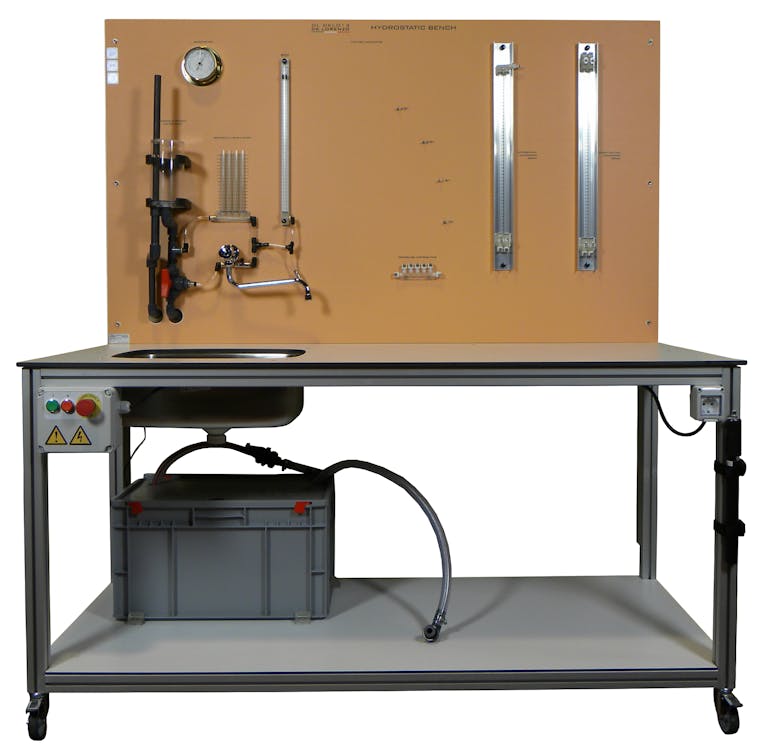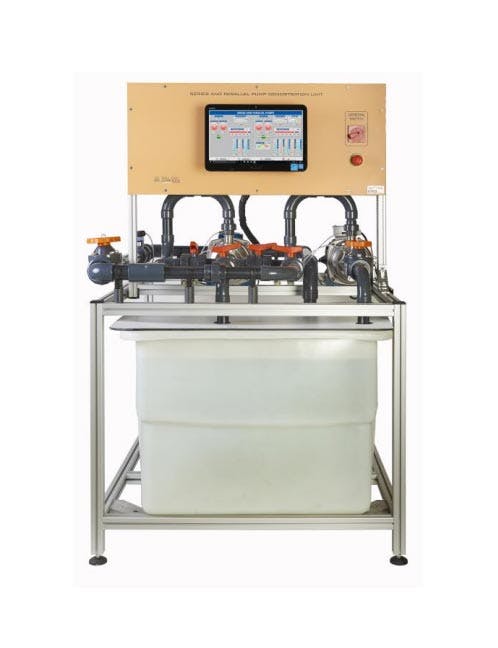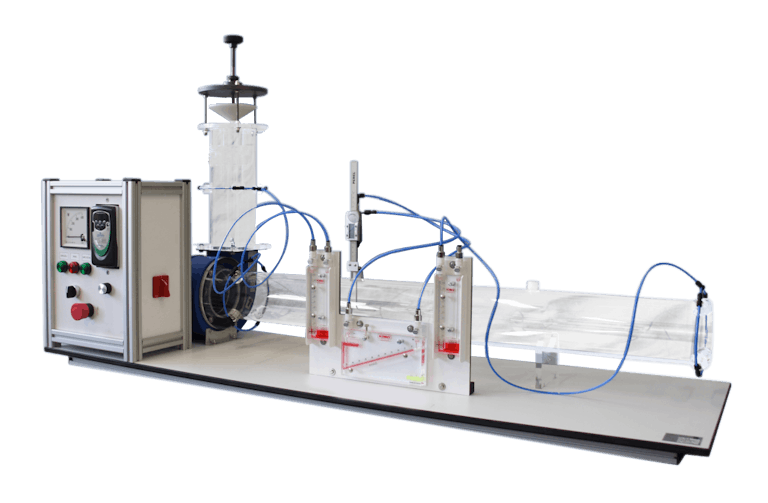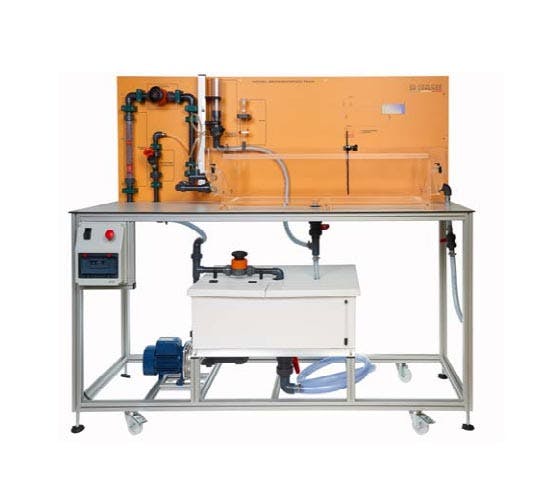Fluid Mechanics studies the laws of motion of fluids and their interaction processes with solid bodies. Fluid mechanics is a mixture of theory and experimentation derived from the research of hydraulic engineers and the reflection of mathematicians and physicists, who address problems analytically. The fundamental characteristic of fluids is the so-called fluidity. A fluid changes shape continuously when subjected to stress, i.e., a fluid cannot withstand shear stress without moving during any interval of time. Some liquids will move more slowly than others, but under shear stress, they will always move. Fluid mechanics is fundamental in fields as diverse as aeronautics, chemical, civil and industrial engineering, meteorology, shipbuilding, and oceanography. With our proposal of didactic systems, De Lorenzo seeks to improve, enhance, and develop cognitive and social processes in terms of professional competencies integrated by knowledge, skills, and attitudes for comprehensive training of the student in Fluid Mechanics.
FUNDAMENTALS OF FLUID MECHANICS
Fluid mechanics is the study of the behavior of fluids under the action of applied forces. On a microscopic scale, matter, particularly a fluid, is composed of molecules at a certain average distance with space between them. These molecules are continuously moving and colliding with each other. An accurate problem analysis is based on studying a molecule or group of molecules in the fluid. It can be divided into fluid statics (or hydrostatics, the study of fluids at rest) and fluid dynamics (the study of the effect of forces on the movement of fluids). De Lorenzo’s didactic systems comprise a hydraulic bench with a closed water circulation…
A machine is an energy transformer. A machine absorbs energy of one kind and returns energy of another kind or the same kind but transformed. The most practical application of Fluid Mechanics to engineering is machine design. Among them, the most numerous are those that supply energy to a fluid (pumps), although those that extract energy from it (turbines) are also important. Both machines are usually connected to a rotating shaft, where the name turbomachines comes from. The didactic objective of our systems in the area of Hydraulic Machines is to know and understand the movement of water through pressurized conduits (pipes), as well as the movement of water…
Aerodynamics is the branch of fluid mechanics that deals with the movement of air and other gaseous fluids and the forces that act on the bodies that move in those fluids. From a practical point of view of aerodynamics, we can mention the movement of an airplane through the air. The presence of an object in a gaseous fluid modifies the distribution of pressure and velocity of fluid particles, causing lift and drag forces. De Lorenzo’s didactic equipment has been developed to study the characteristics of an axial and centrifugal fan, by completing a wide range of practices and experiences.
HYDRAULICS, HYDROLOGY AND WATER TREATMENT
Water Treatment explores the techniques for sizing the precise elements for the operation of a hydraulic work, ways of verifying that an existing work is capable of transporting or evacuating the required flow rates, the study of the calculation and application of viable solutions, the study of the concepts on which hydraulics are based, as well as general concepts of environmental hydrology, the study of the movement, distribution, and quality of the waters. Other concepts are known, such as open channel hydraulics, handling basic open channel flow equations, defining geometric parameters for designing open channel sections, sizing drains and weirs, hydrological prediction and studying hydrology fields.



